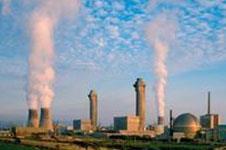French energy firm still confident despite British Energy's snub that has left UK contractors in limbo
State-owned French energy giant EDF has said it is still confident of playing a role in the nuclear future of the UK, despite British Energy rejecting its £12bn takeover bid today.
The rejection of the bid, which would have seen a new generation of nuclear power stations given the green light, is a setback for British construction companies hoping to start negotiations on the nuclear building programme.
Speaking just hours after EDF announced its intention to back out of takeover talks, chief executive Pierre Gadonneix said: “I confirm our ambition to be a major actor of the nuclear rebirth in Britain. We have been working on that for three years and we have taken measures to reach this target.”
But he said that “financial conditions” are not at present appropriate for a move into the British market.
EDF had been expected to announce today a £12bn deal to buy British Energy, but the UK company's board has rejected the bid as too low. The board is understood to have expected a higher offer than the one tabled by EDF, given the rising energy prices in the UK.
The deal would have given EDF ownership of eight of the UK's 10 nuclear power stations and the sites on which the next generation of power stations will be built.
Alastair Smith, director of nuclear services at infrastructure contractor Parsons Brinkerhoff, said in Building last month that the sale of British Energy was essential in order for work to commence. He said: “Once we know who owns the company, we know who to negotiate with.”
However, Simon Harrison, energy director at Mott MacDonald, said EDF taking sole ownership of British Energy might have been seen as anti-competitive, and would have caused more problems than it solved.
He said: “I didn't see how EDF owning a controlling stake in British Energy would be credible from a competition perspective. A deal would theoretically set out the landscape, but if the Competition Commission got involved and split up some of the ownership then it could unravel the deal anyway.”
The future of the redevelopment of Britain's nuclear sites could now emerge through a number of different outcomes.
First, British Energy's shareholders could relent and accept the £12bn deal, or EDF could table a higher bid. EDF has confirmed it has not yet thrown the towel in on negotiations, so either outcome is a possibility.
Second, one of the other mooted bidders for British Energy - which included Spanish energy group Iberdrola and French firm Suez - could return to the table, although this is thought to be unlikely.
The third option - and the most favourable for UK industry - would be if British Energy called off the auction and decided to parcel its assets up into different packages and develop them as joint ventures with different energy and construction companies.
Mott MacDonald's Harrison said: “That has to be the better way of developing the sites. It would be the ideal outcome.”
But a single takeover is still considered the most favourable option by British Energy and by the government, which would stand to make about £4bn from a successful takeover of the company, in which it holds a 35% stake.
After the collapse of the planned sale to EDF, which the government is thought to have backed, the single takeover option is looking increasingly unlikely, however.




























No comments yet